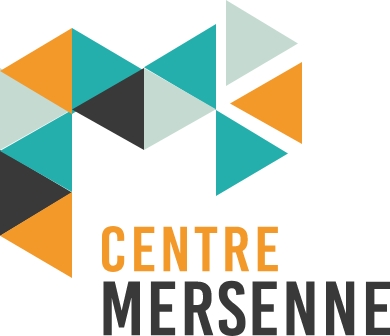What is HAL?
An open archive
An open archive is a platform that allows any researcher to disseminate his or her own publications freely and without charge, with the agreement of his or her co-authors. There are many of them, often associated with an institution or a research area:
- HAL, Hyper Article en Ligne : multidisciplinary
- ArXiv: mathematics, physics, computer science and quantitative biology
- PubMed Central : biomedical and life sciences
- RePEc, Research Papers in Economics : economy
- PeerJPreprints: biology
To find an open archive, there is the OpenDOAR, an international directory of open access platforms: digital libraries, open archives, scientific archives, etc. The advanced search allows you to search by type of document hosted, by country, by scientific discipline, by type of repository (institutional, disciplinary, aggregator, governmental, etc.).
HAL
HAL, Hyper Articles en Ligne, is a multidisciplinary open archive developed by the CCSD, the Centre for Direct Scientific Communication. Researchers can submit their own scientific articles with the agreement of their co-authors and in compliance with the publishers’ policy.
Types of documents
The NISO has defined 7 stages in the life cycle of a manuscript:
- Author’s Original = Author’s version = preprint: version of the article that can be submitted for peer review. The author assumes full responsibility
- SubmittedManuscript Under Review = peer-reviewed version of the manuscript: the version of the article submitted for peer review, which follows the editor’s formatting
- Accepted Manuscript = accepted manuscript = postprint: version accepted by the journal. The editor is responsible for the content. The content and layout respect the codes of the magazine
- Proof = version to be published: version of the article created during the publication process
- Version of Record = final published version: published version with journal formatting
- Corrected Version of Record = corrected published version: final published version with errors corrected
- Enhanced Version of Record = final annotated version: updated version, with added information, notes
The Coop-IST summarises this list in 3 main versions:
- The preprint: the last version of the article before peer review
- The postprint :
- The final version published
Laws of the French Digital Republic
What does the law say?
Article 30 of Loi n°2016-1321 du 7 octobre 2016 pour une République numérique states:
« Art. L. 533-4.-I.-Lorsqu’un écrit scientifique issu d’une activité de recherche financée au moins pour moitié par des dotations de l’État, des collectivités territoriales ou des établissements publics, par des subventions d’agences de financement nationales ou par des fonds de l’Union européenne est publié dans un périodique paraissant au moins une fois par an, son auteur dispose, même après avoir accordé des droits exclusifs à un éditeur, du droit de mettre à disposition gratuitement dans un format ouvert, par voie numérique, sous réserve de l’accord des éventuels coauteurs, la version finale de son manuscrit acceptée pour publication, dès lors que l’éditeur met lui-même celle-ci gratuitement à disposition par voie numérique ou, à défaut, à l’expiration d’un délai courant à compter de la date de la première publication. Ce délai est au maximum de six mois pour une publication dans le domaine des sciences, de la technique et de la médecine et de douze mois dans celui des sciences humaines et sociales ».
Thus, the following are concerned:
- research that is at least half publicly funded
- and whose results are published in a journal
What the law allows us to do
The Sherpa/Romeo website lists the different positions of publishers with regard to deposit in open archives. For example, some publishers request an embargo period or require the submission of a specific version of the publication. It is therefore advisable to check the open access practices of your publisher before depositing your article on an open archive.
The law for a Digital Republic facilitates the deposit in open archives. Indeed, this law allows authors to deposit the accepted version of their publication and limits embargoes to 6 or 12 months depending on the discipline.
Recommendations
The CNRS Legal Affairs Department offersRecommandations pour un dépôt régulier d’une publication en archives ouvertes :
- 1. Check that the document is not confidential (patentable result, secret know-how, etc.). If it is, it should not be filed.
- 2. Make sure that your co-authors and other contributors (photographers, illustrators, other authors…) agree to the deposit in the archive.
- 3 . If your document has not been entrusted to a publisher or distributor: you are free to deposit it, but if you plan to publish it in the future, remember to inform your publisher of the deposit.
- 4. If your document has been entrusted to a publisher or distributor :
- If no written contract of assignment of rights has been concluded, You are free to file it after the first publication. Nevertheless, in the context of a fair relationship, inform your publisher.
- If the contract concluded does not provide for the exclusive transfer of rights for all media or for electronic media, You are free to file it.
- If the contract has provided for the possibility of making the document openly accessible after a certain period of time, you are free to file it after the period.
- If the contract has provided for the assignment of your rights on an exclusive basis for any medium, or for the electronic medium only, for the duration of the legal protection : contact your publisher to obtain its written permission for deposit, based on its current open access policy on itswebsite, or on the websites dedicated to these issues: http://www.sherpa.ac.uk/romeo.php for publishers, http://romeo.eprints.org for the journals. »
Be careful, therefore, to keep your contracts with publishers: all the information relating to dissemination on the open archives is indicated (transfer of rights, distribution, etc.).
The case of preprints
The preprint has not been edited and remains the property of its author. In theory, every researcher has the right to deposit his or her preprints on an open archive.
The Guide d’application de la loi pour une République numérique (article 30) Écrits scientifiques (version courte) states that the deposit of scientific writing on a platform is always possible at any stage of its writing by the author. Thus, the preprint is a priori exempt from publisher’s authorisation.
However, the Rennes 1 Open Access website points out that in reality, authors are often forced to assign their rights as soon as the contract is signed, upstream of the proofreading and publishing process. However, most publishers allow pre-prints to be distributed under certain conditions.
It is therefore advisable to check on Sherpa/Romeo which document can be disseminated on the open archives. The Loi pour une République Numérique does, however, limit the embargo on the dissemination of research results. Check your contract with Sherpa Romeo.
Which Creative Commons license to apply?
The Article 30 of the Loi pour une République Numérique points out that : « La version mise à disposition en application du premier alinéa ne peut faire l’objet d’une exploitation dans le cadre d’une activité d’édition à caractère commercial ».
This clause therefore prohibits the use of the CC-0, CC-BY, CC-BY-ND and CC-BY-SA licences, which allow commercial use.
Read more about Creative Commons.
For more information:
- https://www.ccsd.cnrs.fr/2016/10/vos-depots-dans-hal-ce-qui-change-avec-la-loi-pour-une-republique-numerique/
- https://www.legifrance.gouv.fr/jorf/id/JORFTEXT000033202746
- https://www.economie.gouv.fr/republique-numerique#
- https://scienceouverte.couperin.org/category/faq/
- https://www.enssib.fr/bibliotheque-numerique/documents/68589-open-access-et-bibliotheques.pdf
- https://www.ouvrirlascience.fr/guide-application-loi-republique-numerique-article-30-ecrits-scientifiques-version-courte/
- https://www.ouvrirlascience.fr/guide-dapplication-de-la-loi-pour-une-republique-numerique-article-30-ecrits-scientifiques/
- https://doc.archives-ouvertes.fr/questions-juridiques/


